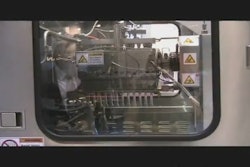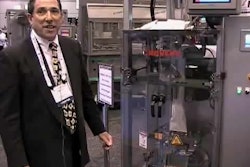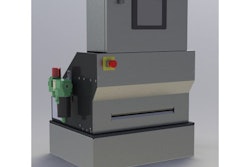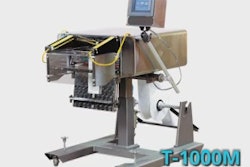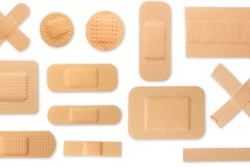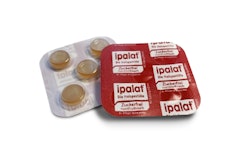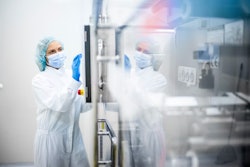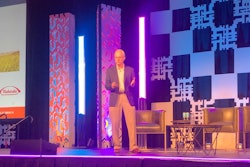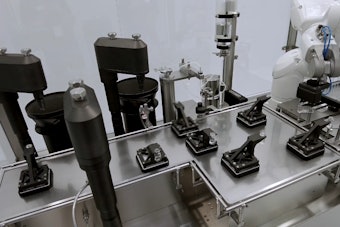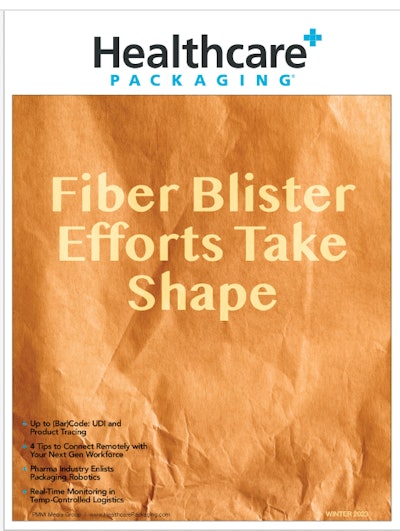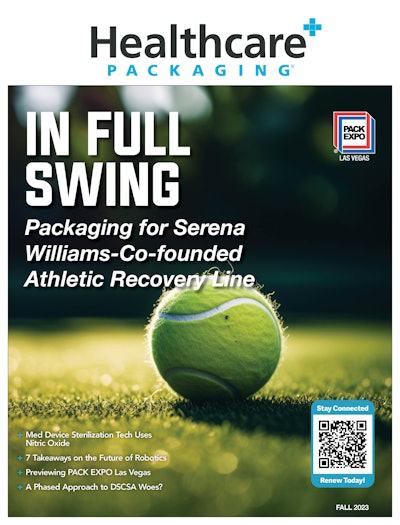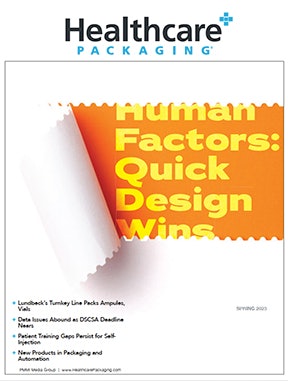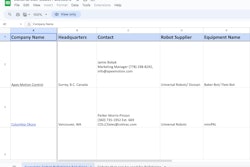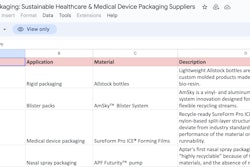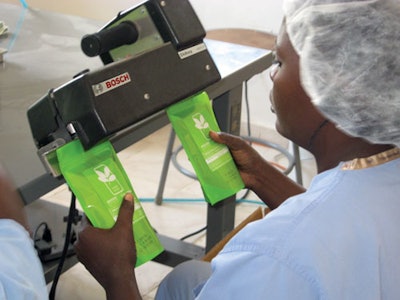
It has been said by some that packaging can play an important role in fighting world hunger. Notes a paper by the World Packaging Organization (WPO) and the International Packaging Press Organization (IPPO), “The global packaging industry can contribute greatly to increased prosperity and sustainability in the world by ensuring that larger amounts of food reach more consumers, preserved in a way that results in better quality and smaller losses.”
Since 2003, packaging has been an integral component of a program developed in Haiti by Dr. Patricia Wolff, professor of Clinical Pediatrics at Washington University's School of Medicine, to combat childhood malnutrition. Meds & Food for Kids (MFK), a registered U.S. nonprofit and a registered NGO in Haiti, develops, produces, and distributes a shelf-stable Ready-to-Use Therapeutic Food (RUTF) in standup pouches that offer superior barrier properties and convenience.
Called Medika Mamba by the Haitians, meaning “Peanut Butter Medicine” in Creole, the RUTF combines peanuts, sugar, and oil, along with a powdered vitamin and mineral mixture, to create an energy-dense, highly nutritious food source for children and others suffering from malnutrition. According to MFK, one in 10 children in Haiti is acutely malnourished, while one in five is underweight. It adds that one in 14 will die before reaching the age of five.
In late 2010, MFK installed new packaging equipment in its factory—a two-story house just outside of Cap Haitien—that has increased its daily production of Medika Mamba twofold. Among the equipment is a new piston filler, as well as a band sealer donated by Bosch Packaging Technology, Inc. to accommodate the higher speeds reached by the new filling system.
Growing program promotes industry
Speaking in a video about MFK, Dr. Wolff notes that one of the things that makes MFK different from other organizations providing food relief is that it has also taken on the challenge of addressing the underlying causes of malnutrition in Haiti: poverty and lack of employment. As much as possible, MFK purchases its raw materials from Haitian farmers and uses local labor to manufacture the product.
Says MFK's Web site, “By purchasing raw materials in Haiti and sharing knowledge with farmers about how to improve their crops, we help develop markets and encourage production and growth. MFK agronomists work with farmers, helping to improve the quality of their peanuts and their yield. We bring information about modern methods of planting, cultivation and fertilizing, treating seeds to avoid fungus and toxins, and controlling weeds. Farmers are introduced to machinery and tools that make their work easier, and at the same time increase their yields.”
Jamie VanArtsdalen, MFK quality assurance supervisor, says, “We are not only treating malnutrition, but also working to prevent it by implementing better agricultural practices and job creation.”
Since 2003, progress, says MFK operations coordinator Thomas Stehl in the video, has been “exponential.” In 2003, he says, MFK produced 800 kg of Medika Mamba per year. “By the end of 2009, we produced 75,000 kilograms of Medika Mamba—enough to have saved over 6,000 children,” he adds.
With production increasing, in 2010 MFK decided to move from its mostly manual packaging process to semi-automated systems. Formerly, the facility used four operators to fill the 500-g and 1-kg stand-up pouches with the viscous product using a pitcher. Filled pouches were then sealed using a hand-actuated impulse sealer.
Says Dave Harmann, packaging consultant to MFK, “The pouch material is quite thick and requires consistent time, temperature, and pressure to seal effectively. The previous sealer often produced inconsistent seals due to variations in how it was operated.”
The stand-up pouch is a 5-mil, three-layer lamination of polyvinylidene chloride-coated PET/nylon/white linear low-density polyethylene and is supplied by ABC Packaging of Avon, OH (440/934-1477). The pouch is printed in one color and includes a resealable zipper feature.
The new band sealer, the HS-CII™ Series from Bosch, was donated to MFK in May 2010. Prior to being shipped to Haiti, it was used for testing in conjunction with a new piston filler from Volumetric Technologies at Volumetric's facility in Minnesota. The lightweight, portable sealer, along with the filler, was installed at the Cap Haitien facility in September.
Producing a 1•„8-in. wide seal, the machine is said to handle film thicknesses from 1 to 6 mil and allows operating pressure and temperature to be easily changed to accommodate different bag styles and thicknesses. A temperature indicator signals when the machine is at the desired sealing temperature, and air-cooled cooling bars set the seal for immediate bag handling.
Says Harmann, “The Bosch sealer provides consistent time, temperature, and pressure, resulting in reliable seals.”
Packaging equipment doubles capacity
To provide greater filling capacity, MFK selected Volumetric's Model 10180-1 single-head piston filler, which allows for the production of 90 kg/hr of 500-g pouches.
While the number of packaging operators (four) has not changed, the new equipment allows MFK to produce almost twice the product as it previously could each day, “which means more children can be treated,” says VanArtsdalen. He adds, “Since production is higher without adding people, the unit cost for Medika Mamba is lower.”
With the new equipment, MFK is growing by leaps and bounds and is now working toward a new larger production and packaging plant. Notes MFK's Web site, “A larger, more efficient Meds & Food for Kids factory will increase our Medika Mamba production from 80 metric tons to 800 metric tons annually, and the number of children who can be treated will likewise increase tenfold to 80,000. A facility designed for safe food processing and large-scale production will in turn drive economic development by creating more jobs and more demand for peanuts from local farmers.”
-- By Anne Marie Mohan, Contributing Editor
Since 2003, packaging has been an integral component of a program developed in Haiti by Dr. Patricia Wolff, professor of Clinical Pediatrics at Washington University's School of Medicine, to combat childhood malnutrition. Meds & Food for Kids (MFK), a registered U.S. nonprofit and a registered NGO in Haiti, develops, produces, and distributes a shelf-stable Ready-to-Use Therapeutic Food (RUTF) in standup pouches that offer superior barrier properties and convenience.
Called Medika Mamba by the Haitians, meaning “Peanut Butter Medicine” in Creole, the RUTF combines peanuts, sugar, and oil, along with a powdered vitamin and mineral mixture, to create an energy-dense, highly nutritious food source for children and others suffering from malnutrition. According to MFK, one in 10 children in Haiti is acutely malnourished, while one in five is underweight. It adds that one in 14 will die before reaching the age of five.
In late 2010, MFK installed new packaging equipment in its factory—a two-story house just outside of Cap Haitien—that has increased its daily production of Medika Mamba twofold. Among the equipment is a new piston filler, as well as a band sealer donated by Bosch Packaging Technology, Inc. to accommodate the higher speeds reached by the new filling system.
Growing program promotes industry
Speaking in a video about MFK, Dr. Wolff notes that one of the things that makes MFK different from other organizations providing food relief is that it has also taken on the challenge of addressing the underlying causes of malnutrition in Haiti: poverty and lack of employment. As much as possible, MFK purchases its raw materials from Haitian farmers and uses local labor to manufacture the product.
Says MFK's Web site, “By purchasing raw materials in Haiti and sharing knowledge with farmers about how to improve their crops, we help develop markets and encourage production and growth. MFK agronomists work with farmers, helping to improve the quality of their peanuts and their yield. We bring information about modern methods of planting, cultivation and fertilizing, treating seeds to avoid fungus and toxins, and controlling weeds. Farmers are introduced to machinery and tools that make their work easier, and at the same time increase their yields.”
Jamie VanArtsdalen, MFK quality assurance supervisor, says, “We are not only treating malnutrition, but also working to prevent it by implementing better agricultural practices and job creation.”
Since 2003, progress, says MFK operations coordinator Thomas Stehl in the video, has been “exponential.” In 2003, he says, MFK produced 800 kg of Medika Mamba per year. “By the end of 2009, we produced 75,000 kilograms of Medika Mamba—enough to have saved over 6,000 children,” he adds.
With production increasing, in 2010 MFK decided to move from its mostly manual packaging process to semi-automated systems. Formerly, the facility used four operators to fill the 500-g and 1-kg stand-up pouches with the viscous product using a pitcher. Filled pouches were then sealed using a hand-actuated impulse sealer.
Says Dave Harmann, packaging consultant to MFK, “The pouch material is quite thick and requires consistent time, temperature, and pressure to seal effectively. The previous sealer often produced inconsistent seals due to variations in how it was operated.”
The stand-up pouch is a 5-mil, three-layer lamination of polyvinylidene chloride-coated PET/nylon/white linear low-density polyethylene and is supplied by ABC Packaging of Avon, OH (440/934-1477). The pouch is printed in one color and includes a resealable zipper feature.
The new band sealer, the HS-CII™ Series from Bosch, was donated to MFK in May 2010. Prior to being shipped to Haiti, it was used for testing in conjunction with a new piston filler from Volumetric Technologies at Volumetric's facility in Minnesota. The lightweight, portable sealer, along with the filler, was installed at the Cap Haitien facility in September.
Producing a 1•„8-in. wide seal, the machine is said to handle film thicknesses from 1 to 6 mil and allows operating pressure and temperature to be easily changed to accommodate different bag styles and thicknesses. A temperature indicator signals when the machine is at the desired sealing temperature, and air-cooled cooling bars set the seal for immediate bag handling.
Says Harmann, “The Bosch sealer provides consistent time, temperature, and pressure, resulting in reliable seals.”
Packaging equipment doubles capacity
To provide greater filling capacity, MFK selected Volumetric's Model 10180-1 single-head piston filler, which allows for the production of 90 kg/hr of 500-g pouches.
While the number of packaging operators (four) has not changed, the new equipment allows MFK to produce almost twice the product as it previously could each day, “which means more children can be treated,” says VanArtsdalen. He adds, “Since production is higher without adding people, the unit cost for Medika Mamba is lower.”
With the new equipment, MFK is growing by leaps and bounds and is now working toward a new larger production and packaging plant. Notes MFK's Web site, “A larger, more efficient Meds & Food for Kids factory will increase our Medika Mamba production from 80 metric tons to 800 metric tons annually, and the number of children who can be treated will likewise increase tenfold to 80,000. A facility designed for safe food processing and large-scale production will in turn drive economic development by creating more jobs and more demand for peanuts from local farmers.”
-- By Anne Marie Mohan, Contributing Editor
